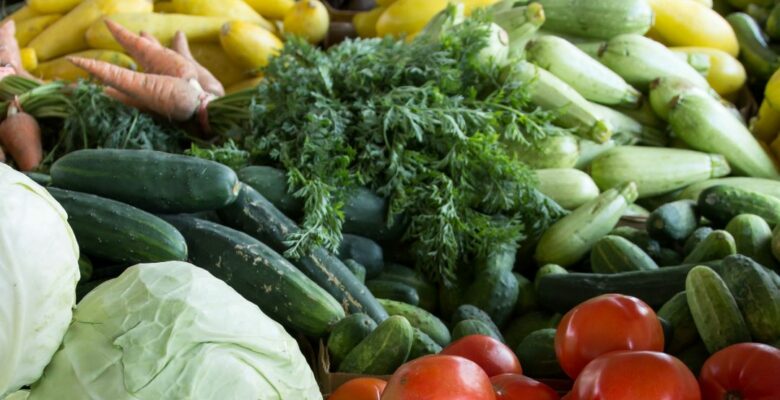In recent years, the food we consume has become a focal point of discussions around health, sustainability, and community. As we delve deeper into the principles of Functional Medicine, it becomes increasingly clear that what we eat plays a crucial role in our overall well-being. One of the most effective ways to ensure our diets contribute positively to our health and the health of our planet is by embracing local sustainable eating, focusing on both fresh locally grown produce and regenerative meats.
The Benefits of Local Sustainable Eating
Local sustainable eating refers to consuming foods that are grown or raised close to home, using methods that are kind to the environment and promote biodiversity. This approach not only supports local economies but also ensures fresher, more nutrient-dense foods on our plates. Here’s why this matters:
Nutrient Density: Local produce is often harvested at its peak ripeness, retaining more vitamins, minerals, and antioxidants compared to produce that travels long distances. This means more nutrition in every bite.
Environmental Impact: Sustainable farming practices, such as crop rotation and organic farming, reduce the need for harmful pesticides and fertilizers, protecting our soil and water sources. This is crucial for long-term food security and environmental health.
Community Support: Purchasing from local farmers and markets keeps money within the community, fostering economic resilience and creating stronger community bonds.
The Power of Fresh, Local Produce
When it comes to fruits and vegetables, buying local means getting the freshest options available. Here are some tips to maximize the benefits:
Visit Farmers Markets: Regular trips to your local farmers market can introduce you to a variety of seasonal produce. These markets often feature heirloom varieties that you won’t find in supermarkets. Here is a list of the BEST Farmers Markets in Colorado Springs and nearby areas in 2024.
Thursdays
BACKYARD MARKET AT PARK UNION
Dates: Every Thursday; June 20 – August 29, 2024
Time: 4:30 pm – 8 pm
Where: The Meanwhile Block. 108 West Cimarron. Park Union
BANNING LEWIS RANCH AT VISTA PARK
Dates: Every Thursday; June 6 – August 1, 2024
Time: 4 pm – 7 pm
Where: 8833 Vista Del Pico Blvd.
Fridays
AHAVAH FARM
Dates: All Year Round
Time: 10 am – 1 pm
Where: 7545 Log Rd. Peyton, CO 80831
WOODLAND PARK
Dates: Every Friday; June 7 – September 27, 2024
Time: 8 am – 1 pm
Where: 117 Center Ave.
Saturdays
OLD COLORADO CITY FARMERS MARKET
Dates: Every Saturday; June 8 – October 12, 2024
Time: 8 am – 1 pm
Where: W. Colorado Ave. & 24th St.
MONUMENT HILL FARMERS MARKET
Dates: Every Saturday; May 25 – October 5, 2024
Time: 8 am – 2 pm
Where: 66 S. Jefferson St.
COLORADO FARM & ART MARKET
Dates: Every Saturday; June 15th – October 12th 2024
Time: 10 am – 2 pm
Where: Margarita at Pine Creek; 7350 Pine Creek Rd.
FOUNTAIN COMMUNITY MARKET
Dates: Every Saturday; May 25 – September 28, 2024
Time: 8 am – 2 pm
Where: Metcalfe Park
BACKYARD MARKET IN BLACK FOREST
Dates: Every Saturday; May 25 – October 5, 2024
Time: 9 am – 1 pm
Where: 12530 Black Forest Rd.
Sundays
CORDERA
Dates: Every Saturday; June 2 – September 1, 2024
Time: 10 am – 2 pm
Where: 11894 Grand Lawn Cir.
Join a CSA: Community Supported Agriculture (CSA) programs allow you to subscribe to regular boxes of fresh produce from local farms. This not only supports farmers but also encourages you to try new and diverse vegetables. How do you find a local CSA? Luckily, there’s an easy answer to this question! It’s www.LocalHarvest.org. This is a website where farmers can list their farm and their CSA. And because it’s free, most farmers use it.
Grow Your Own: If you have the space, consider starting a garden. Even a small plot or a few pots can yield a surprising amount of fresh produce, giving you complete control over what goes into your food.
Embracing Regenerative Meat Practices
Just as with produce, the way meat is raised has significant implications for our health and the environment. Regenerative agriculture is a holistic approach to farming that focuses on regenerating the soil and improving biodiversity. Here’s why regenerative meat matters:
Soil Health: Regenerative practices such as rotational grazing help improve soil health by enhancing its organic matter and reducing erosion. Healthy soil is crucial for capturing carbon and combating climate change.
Animal Welfare: Animals raised on regenerative farms typically have better living conditions, with more space to roam and engage in natural behaviors. This leads to healthier animals and, consequently, healthier meat. Happy animal = Happy meat!
Nutrient-Rich: Meat from animals raised on regenerative farms tends to be richer in nutrients such as omega-3 fatty acids, vitamins, and minerals compared to conventionally raised meat.
Making the Transition to Local Sustainable Eating
Transitioning to a diet rich in local, sustainably produced foods can seem daunting, but it doesn’t have to be. Here are some steps to get you started:
Educate Yourself: Learn about local farms and markets in your area. Many communities have directories or online resources that list where you can find local produce and meats.
Start Small: Incorporate one or two local, sustainably sourced items into your meals each week. Gradually increasing the number of these items can make the transition more manageable.
Get Involved: Participate in local food movements and events. Many areas have food tours, farm visits, and workshops that can deepen your understanding and appreciation of sustainable eating.
Conclusion
Embracing local sustainable eating is more than just a dietary choice—it’s a commitment to your health, your community, and the planet. By focusing on fresh, local produce and regenerative meats, you align your diet with the principles of Functional Medicine, promoting wellness from the ground up. As you explore these options, you’ll likely find that the food not only tastes better but also feels better for you, creating a nourishing foundation for a healthier life.
By adopting these practices, you take an active role in supporting a more sustainable and healthful food system. Whether you’re a seasoned locavore or just beginning your journey, every step towards local, sustainable eating is a step towards a brighter, healthier future.


